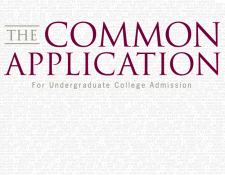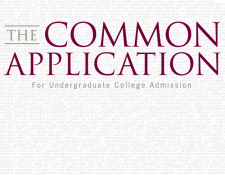First, let me tell you what you already know: start the essay early. (Like, now.) Revise it often. Be open to topics and possibilities. Ask people you trust (parents, teachers, friends) for feedback.
I don’t have to tell you what’s at stake, because you already know that too. And you probably also know that starting what Anne Lamott calls the “#$%*& first draft” is hard too, and so is revising that @#$&* first draft. That doesn’t mean you shouldn’t do it; it means try not to listen to the Greek chorus of prohibition and foreboding in your head. You know, the one that’s intoning “This is a stupid idea. Nobody cares. I can’t come up with anything except clichés. Nothing interesting ever happened to me. Thousands of people have already written about this topic.”
Thousands of people probably have written about this topic, and thousands more probably will. There are no new stories under the sun, but there are new ways of telling them. Let me tell you something else: there’s no “right” topic. You don’t have to write about leadership or persistence or overcoming adversity, unless you want to. Write what you know, no matter how humble or unspectacular-seeming. You may find in so doing that the qualities you’re seeking to communicate in the essay (persistence, creativity, talent, passion, humor, kindness, curiosity) will announce themselves without fanfare between the lines.















